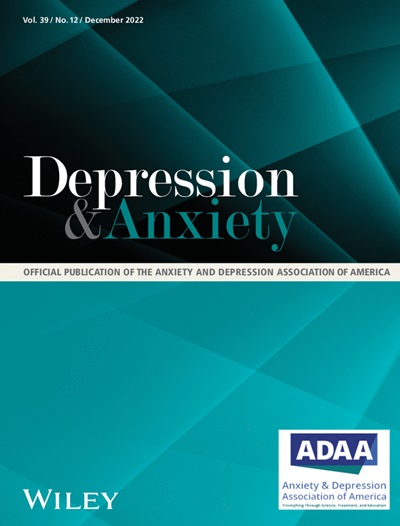Interrelationships Among Personality Traits, Depressive Symptoms, Childhood Abuse, and Social Disability
Abstract
Background
Personality traits and childhood abuse were found to be associated with depressive symptoms and with each other. However, no previous study has elucidated the directional interrelationship among those factors in a clinical population of patients with major depressive disorder (MDD). This study sought to construct networks to explicate the directional interrelationship among those factors and social disability, identify the most central factor, and explore potentially existing causality chains implied by the directed association chains.
Methods
This cross-sectional study analyzed data from 1445 patients with MDD in a national cohort. Personality traits were measured using the Eysenck Personality Questionnaire-Revised Short Scale for Chinese (EPQ-RSC). Seven dimensions of depressive symptoms were measured with various scales: depression, anxiety, insomnia, and somatic symptoms with the 17-item Hamilton Depression Rating Scale (HAMD-17), the loss of pleasure sensation with the Snaith-Hamilton Pleasure Scale (SHAPS), apathy with the Modified Apathy Evaluation Scale (MAES), and fatigue with the Chalder Fatigue Scale (CFS-11). Childhood abuse experience was measured using the Childhood Trauma Questionnaire-Short Form (CTQ-SF). Social disability was measured with the Sheehan Disability Scale (SDS). Undirected and Bayesian network analyses were used to identify central factors and explore directional interrelationships among the variables.
Results
The loss of pleasure sensation was the most central in terms of strength and closeness. In the directed acyclic graph (DAG) derived from the Bayesian network analysis, psychoticism was positioned at the highest level in the model, suggesting its causal precedence. One key directed association chain, which implied a potentially existing causality chain, was that psychoticism predicted the loss of pleasure sensation, and this symptom predicted social disability.
Conclusion
Loss of pleasure sensation and psychoticism might be important for future research in MDD. The appearance of psychoticism at the beginning of the directed association chain (which implied a potentially existing causality chain) involving the central factor and the characteristics of high psychoticism implied that the social/interpersonal component of the loss of pleasure sensation may be a meaningful focus of future research and intervention of MDD.
Trial Registration
Chinese Clinical Trial Registry: ChiCTR2200059053


 求助内容:
求助内容: 应助结果提醒方式:
应助结果提醒方式:


